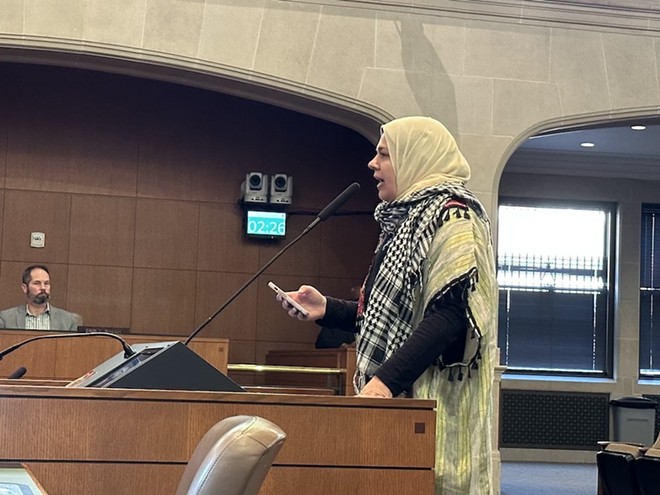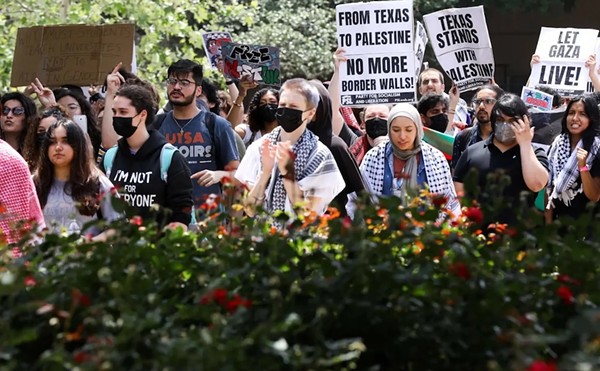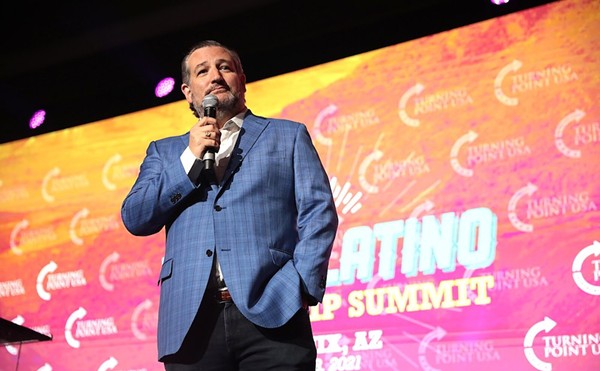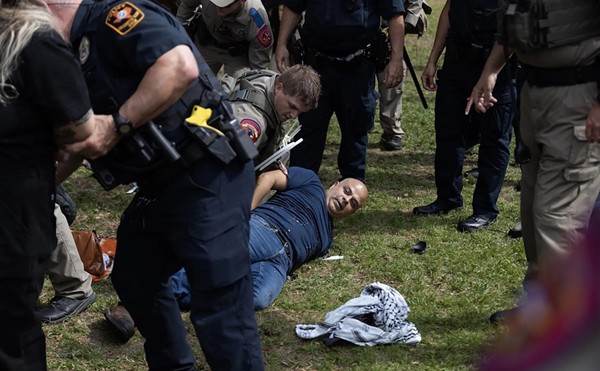
Editor's Note: Bad Takes is a column of opinion and analysis.
"A condemnation that displays motivated selection condemns itself." — Gerald Cohen, Ways of Silencing Critics
I had the good fortune to hear Holocaust survivor and Nobel laureate Elie Wiesel speak in the mid-1990s when I was in middle school. Just as his poignant 1960 memoir Night did, his talk compelled me to think about controversial and weighty subjects I hadn't before.
For example, he said the first recorded instance of genocide he could find was committed by the nation of Israel. It's documented in 1 Samuel 15, verses 2-8:
"This is what the Lord Almighty says, 'Now go, attack the Amalekites and totally destroy all that belongs to them. Do not spare them; put to death men and women, children and infants, cattle and sheep, camels and donkeys.' So King Saul summoned the men at Telaim — 200,000 foot soldiers and 10,000 from Judah. Saul went to the city of Amalek and set an ambush in the ravine. Then Saul attacked the Amalekites all the way from Havilah to Shur, near the eastern border of Egypt. He took the king of the Amalekites alive and all his people he totally destroyed with the sword."
A kill list cataloging breast-feeding newborns alongside the livestock no doubt rubs modern sensibilities the wrong way. But back when I was a Christian, you'd be surprised how many of my fellow believers — dedicated to interpreting the Bible as the literal word of God — tried to excuse the divine injunction in the above passage.
"The Israelis were attacked first," I was told, or "The Amalekites were evil incarnate," or "You cannot impose contemporary ethical standards on the ancient past," and so forth. To which I would immediately reply, "What could possibly justify putting infants to death? Who could give such an order?"
At the risk of offending all three Abrahamic religions, I'm against killing children, and I don't buy that any omnibenevolent deity would order a leader to do so. Instead I hold King Saul and his soldiers wholly responsible for their own actions. I took Wiesel's message to be that "Never Again" must apply to all people everywhere, because if we let our hearts harden enough, we're all capable of rationalizing atrocity.
After Hamas' vicious Oct. 7 attack on Israeli civilians, the San Antonio City Council had no difficulty expressing solidarity with the victims.
To a member, each seat on the Council echoed the words of District 3's Phyllis Viagran, "When an attack on humanity like this happens, it is important that all levels of government use their voice to condemn such actions."
Yet no similarly shared condemnation has emerged in response to the Israeli Defense Forces' brutal bombing campaign of Gaza, which has killed thousands of civilians.
Indeed, when pro-Palestinian activists spoke during the City Council's public comment session last month, more than half of council members either left during or didn't show up, refusing to even hear them out.
On Oct. 19, the Current stood alone in covering the walkout.
"By the end of public comment, there were four members of our council left to listen," District 2 Councilman Jalen McKee-Rodriguez tweeted afterward.
"As a Jew, I'm deeply ashamed of the inaction that the City Council has taken," Judith Norman, a Trinity University professor and member of Jewish Voice for Peace, remarked at the time. "I'm deeply grateful to the two City Council representatives who have spoken out against this."
In addition to McKee-Rodriguez, District 5 Councilwoman Teri Castillo has lamented the loss of innocent life on both sides of the conflict.
Contrast that with District 10's Marc Whyte.
"I want everyone in San Antonio to remain vigilant. We are only three hours from our border, and recently we know we've had thousands of people come across that border," he said. "I want to again call on the federal government to do its job, close the border. And for all levels of government dealing with the folks coming across, we need to do the best we can to make sure we know where these people are coming from and what their intentions are. Just like our great country emerged stronger after 9/11, after the dust settles on this, Israel will be stronger as well."
Setting aside that asylum-seekers fleeing persecution and looking for work shouldn't be mentioned in the same sentence as a military dictatorship like Hamas — a terror group that's clearly not synonymous with the Palestinian people — we should ask whether the U.S. did "emerge stronger after 9/11."
We "tortured some folks," to quote President Barack Obama's blithe admission, squandering the world's goodwill and irreparably damaging U.S. prestige. We rushed into roundups of Muslim Americans and enacted Constitution-shredding domestic mass surveillance. We launched two wars which devolved into decades-long quagmires, wasting trillions of dollars and costing the lives of thousands of soldiers and countless innocent civilians. Was that strength, or succumbing to the same bloodlust which we have had no qualms about condemning in our enemies?
And consider the stakes for free discussion after 9/11 and today.
Recently, professors and students have been blacklisted and smeared, and unions have been sued for statements they issued on the current Middle Eastern conflict. Many have conflated expressing any form of sympathy for Palestinians with endorsing terrorism.
Perhaps national security is too important to be left up to nation-states. This charade where the UN Secretary-General issues empty proclamations and the peace movement yelps without consequence is not working to keep warring sides from slaughtering civilians.
We require an international legal order with teeth, one that's capable of stopping ethnic cleansing in its tracks. And there can be no lasting peace anywhere without addressing the root causes of deprivation, desperation and injustice.
"The opposite of love is not hate but indifference," Wiesel often said.
Love and hate are heated emotions, after all, whereas indifference is cold. Perhaps this is the silver lining to the vitriolic conversation in which we find ourselves.
We care. If we didn't, we would not be arguing. Let's try to continue to listen to one another instead of walking away.
Subscribe to SA Current newsletters.
Follow us: Apple News | Google News | NewsBreak | Reddit | Instagram | Facebook | Twitter| Or sign up for our RSS Feed

















